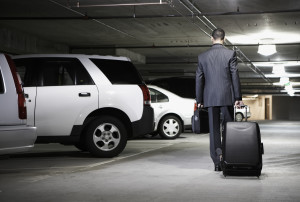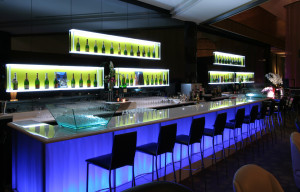 While a place we visit daily may not feel dangerous, many workplace parking lots leave employees vulnerable to theft, assault or vehicle break-ins. The parking lot design, location, security measures, and hours of operation can present or deter the risk of workplace violence.
While a place we visit daily may not feel dangerous, many workplace parking lots leave employees vulnerable to theft, assault or vehicle break-ins. The parking lot design, location, security measures, and hours of operation can present or deter the risk of workplace violence.
The Canadian Centre for Occupational Health and Safety (CCOHS) has compiled a list of safety guidelines to help employees protect themselves and reduce their risk of becoming victims of parking lot violence:
General Employee Parking Lot Do’s and Dont’s
Always:
- Park near your building in a highly visible and well-lit area.
- Park near the parking attendant or a well-lit exit.
- Use the main building entrance — avoid secluded exits.
- Keep your valuables, including purses and recent purchases, out of sight.
- Lock the doors and roll up windows once you are in the vehicle.
- Have a plan ahead of time. Know where you can go for safety and how to call for help.
Never:
- Do not park next to large vehicles as they will block your sight.
- Do not have a personal identification tag on your key ring.
- Do not approach someone loitering near your vehicle. Walk to a safe place such as a lighted store, house or building. Call the police.
Workplace Parking After-Dark or in High-Risk Neighborhoods
Always:
- Try to walk with a friend, co-worker or security officer. Give your escort a ride back to the main entrance so they do not have to walk back alone.
- If you have to walk alone:
- Have a co-worker watch you from a window.
- Wave to them on the way to your vehicle.
- Wave even if no one is watching to give the illusion that someone is watching you.
- Stay on well-lit streets and in the center of the sidewalk. Stay away from hiding spots, such as bushes, doorways, alleys and parked cars. Cross the road if necessary.
- Be alert to your surroundings. Walk with confidence. Keep your head up and look around.
Never:
- Do not dig in your purse or bag.
- Do not wear headphones, use a cellphone or other distraction.
- Do not carry heavy briefcases or bags that may get in the way.
Approaching Your Vehicle
- Be prepared when you leave your business or when leaving your car for work. Have ready:
- Your keys to unlock the vehicle.
- Your keys or cardkey to unlock the building doors.
- A whistle or other personal alarm.
- As you approach your car, look around, inside and even glance underneath for people who may be present. If you are suspicious, walk away. Go to a safe place and call for help.
- Report suspicious behavior to the parking lot attendant, security or police.
See complete workplace parking lot safety guidelines at CCOHS.
Parking lot owners and managers are required by law to provide a safe premises for all patrons legally on their property and to prevent foreseeable third-party criminal attacks, such as rapes, shootings, assaults, or robberies. For example, should a proprietor have reason to anticipate a criminal act based on knowledge of a security lapse or a previous crime on or near property, he or she then has a duty to exercise ordinary care to deter such crime and protect those legally on their premises from harm.
We’ve Recovered Millions for Victims of Parking Lot Security Negligence…Contact us Now for a Free Consultation.
The Murray Law Firm has extensive and successful experience in representing victims of parking lot security negligence. We offer our legal assistance, if desired. We represent our Clients on a contingency agreement, which generally means that no fees or payments are owed until and unless we recover. Anyone seeking further information or legal representation is encouraged to contact us via e-mail (click here) or by telephone at 888.842.1616. Consultations are free and confidential.
 The Legal Herald
The Legal Herald



 Apartment and Hotel Pool Owner Responsibility
Apartment and Hotel Pool Owner Responsibility The DC Metropolitan Police Department has released their Best Practices for Nightlife Establishments report, outlining how nightclub owners can develop a safe nightlife atmosphere for patrons. While the full report addresses a variety of crucial nightclub security guidelines, including age verification, intoxication, employee training, and security procedures, this article specifically focuses on the DCPD best practices for preventing nightclub sexual assault.
The DC Metropolitan Police Department has released their Best Practices for Nightlife Establishments report, outlining how nightclub owners can develop a safe nightlife atmosphere for patrons. While the full report addresses a variety of crucial nightclub security guidelines, including age verification, intoxication, employee training, and security procedures, this article specifically focuses on the DCPD best practices for preventing nightclub sexual assault.